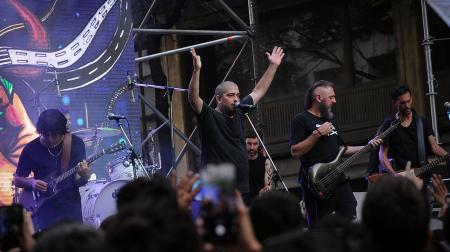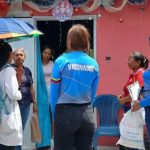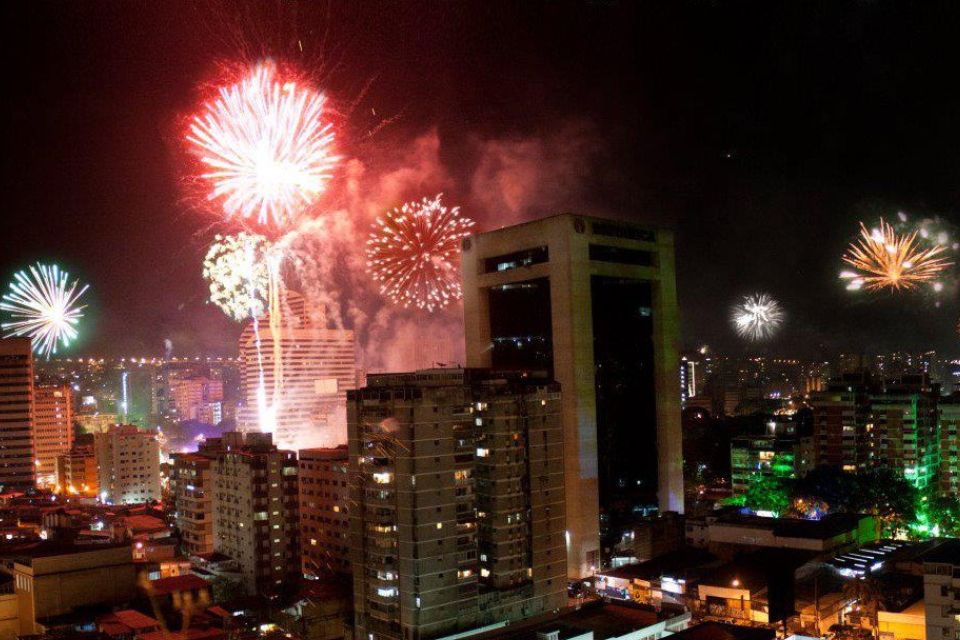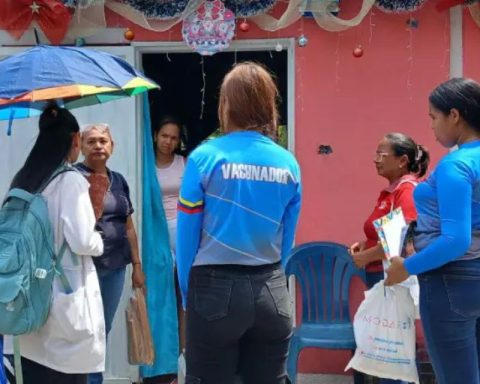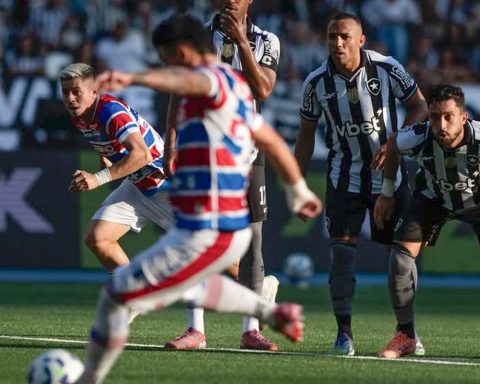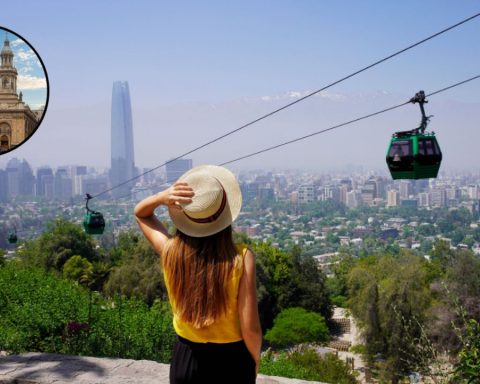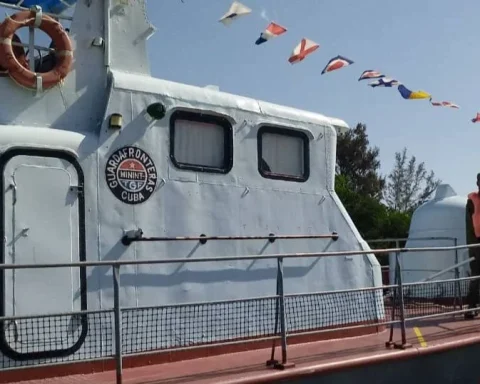The singer Patricio Fontanet, who led the band Callejeros 18 years ago when the Cromañón massacre occurred, gave a recital at the Obelisk, on a new anniversary of the event.
Fontanet, who now leads the band Don Osvaldowas cheered upon entering the stage mounted on the Plaza de la República, where hundreds of people began to wave flags with phrases alluding to the massacre.
Among them were read “Music does not kill” and “I carry the kids forever.” Most of the flags came from towns in the Buenos Aires suburbs.
Fontanet sang for about 20 minutes without making any allusion to the massacre and after introducing himself with the song “Normal”then sang.
Blind, O No, Más Allá, Dos Secas, which were sung emotionally and effusively by the public.
Among the spectators, many of them fans of the Villa Celina band, waved their flags back and forth and responded with emotion.

After finishing the recital, the public began to sing “corruption kills these kids” and “Street is a feeling that I can’t stop”.
Pablo Pettinaroli, a survivor of the massacre, pointed out that these 18 years “were like adolescence. One begins to think that a long time has passed and sometimes it is even very exhausting, but here we are fighting so that it does not happen again.”
He indicated that from Cromañón “the public is calmer, I take another type of conscience. Mostly the dimension of what happened that night was taken. Although there are still remnants of the danger of that night in some places”
“After Cromañón, what I set out to do is go to a recital because if I let some time pass, it would cost me too much. This was not going to keep me from what I love the most,” he said.

Elsa Meilan, who lost her husband Mariano Valsangiacono and her sister-in-law Verónica, assured that “it doesn’t matter if 10 or 18 years have passed, the pain is always there.”
In this sense, he pointed out that the recovery of the bowling alley symbolizes “the resignification of the fight and everything they have suffered in these 18 years.”
Along the same lines, he indicated “we are obliged to fight and keep their memory alive and so that generations know what happened.”
Javier García, a survivor of Cromañón, pointed out that “for us it is closing a circle. It is something beautiful that Patricio (Fontanet) has played on our stage, because they are also survivors.”
“They took people out of the nightclub, visited morgues like us and accompanied us on the first marches. So for us they are companions in the fight,” he said.

And he added “It is an act of justice for many of us, although we understand that some do not like it and we understand their pain.”
The Fontanet recital began after 6:00 p.m., organized by the group of relatives and survivors “Que no nos cuentan Cromañón” where the list of the 194 victims was projected on a giant screen located on the stage.
Prior to the recital, a document was read in which they highlighted the climate of joy and “another face” in the people on this new anniversary of the massacre, both for obtaining the world soccer championship and for “recovering the space of the Obelisk” for “those of us who support Fontanet in full conviction of his innocence”.

They also demanded the recovery of the space where the bowling alley operated – which will be delivered to the families of the victims – and that many children who did not know what Cromañón was came to “this space of memory and collective struggle.”
“We earned the right to tell that story, it is a minimum payment for so much pain, tears and struggle spilled. We recovered this place to keep memory alive and the claim for truth and Justice,” they indicated in the text.
